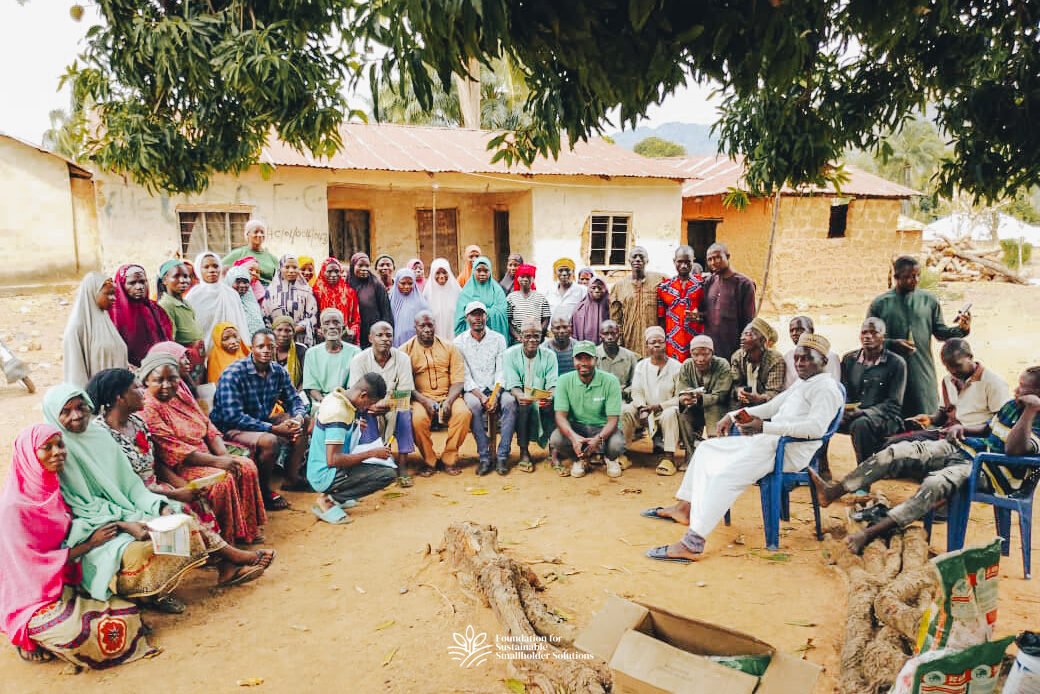April 2025 was a pivotal month for the Foundation, characterised by wide-reaching farmer engagements, strategic input delivery, and thought leadership in sustainable agriculture. From the southern green belts of Oyo and Ogun to the food-producing zones of Nasarawa, Benue, and Kaduna, the Foundation’s work brought critical support to Nigeria’s smallholder farmers—many of whom form the backbone of national food systems yet remain vulnerable to climate variability, rising input costs, and limited access to agricultural innovations.
At the heart of these efforts was a commitment to climate-smart, inclusive agriculture—reflected in high-impact training sessions, input distribution networks, collaborative programmes, and a powerful World Earth Day webinar that brought sustainability to the forefront.
A Climate-Conscious Conversation for World Earth Day
In honour of World Earth Day (April 22), the Foundation hosted a virtual dialogue under the theme “Sustainable Farming for a Healthier Earth: Empowering Smallholder Farmers for Climate Action.” Featuring agricultural scientist Dr OrevaOghene Aliku and climate resilience advocate Mr Emmanuel Orjichukwu, the session examined the complex interplay between agriculture, climate change, and farmer empowerment.
Key themes discussed included:
- Regenerative agriculture as a pathway to restoring degraded soil and reversing biodiversity loss;
- Carbon farming as a new frontier for turning environmental stewardship into income-generating activities;
- Policy frameworks and financial instruments needed to scale sustainable farming practices;
- And climate-smart farming approaches to build resilience in the face of erratic rainfall, rising temperatures, and declining yields.
The webinar engaged participants from across Nigeria and beyond, drawing stakeholders from development agencies, NGOs, academia, and the private sector. Although unforeseen technical challenges disrupted the recording, the Foundation reaffirmed its commitment to convening future learning spaces.
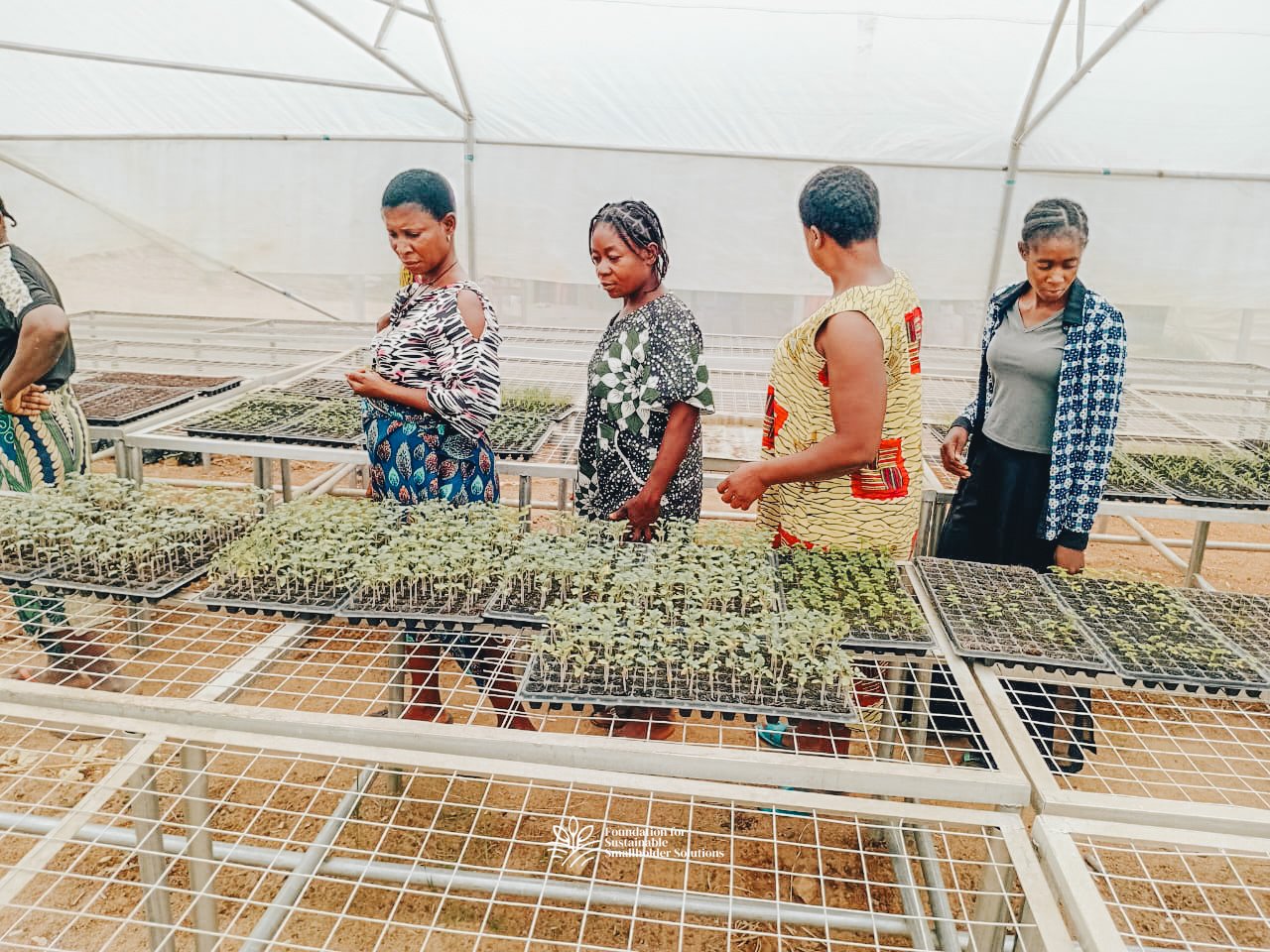
Field-Level Impact: Technical Training and Knowledge Transfer
Throughout April, the Foundation’s Business Support Service Officers (BSSOs) and Project Supervisors rolled out a series of hands-on training sessions across the country, delivering tailored, location-specific agricultural education.
Key topics covered:
- Good Agricultural Practices (GAP)
- Soil mapping and nutrient management
- Integrated Pest Management (IPM) using drone-assisted surveillance
- Seedling care, crop spacing, and staking techniques
- Fertiliser application protocols for high efficiency
Select community highlights:
- Ashangwa, Nasarawa and Gboko, Benue (April 28): A total of 17 farmers (9 women, 8 men) received training on sourcing and using high-quality inputs, addressing the challenge of counterfeit agrochemicals in rural markets.
- Kururuwa Village, Nasarawa (April 25): 34 farmers participated in a practical session on pest control, soil conservation, and climate adaptation methods.
- Gako Village, Nasarawa (April 23): 83 farmers (49 women, 34 men) were trained on GAP and crop protection, demonstrating the Foundation’s gender-inclusive approach.
- Lagelu LGA, Oyo State (April 12): 75 farmers explored new techniques for soil management and pest control, with live demonstrations of drone application technology.
- Konadun Village, Ogun State (April 17 & 23): Farmers received structured support, including greenhouse performance assessment, irrigation troubleshooting, and input sales facilitation.
Across all sessions, participants received practical demonstrations, printed guides in local languages, and access to post-training follow-up from field officers.
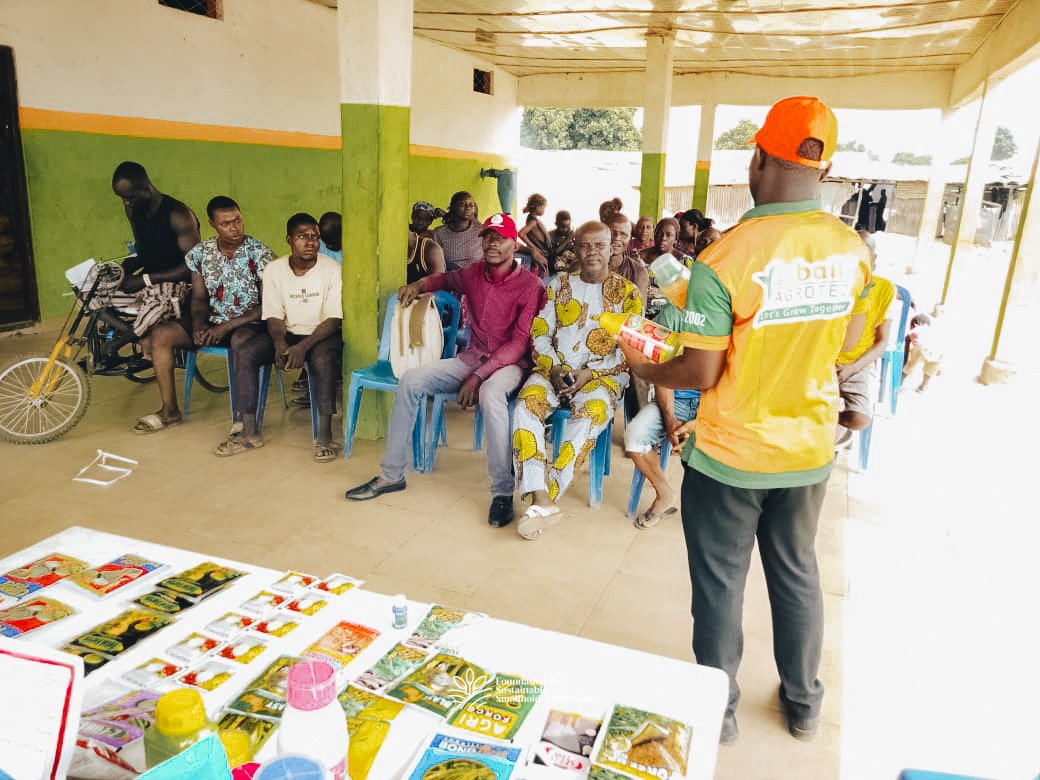


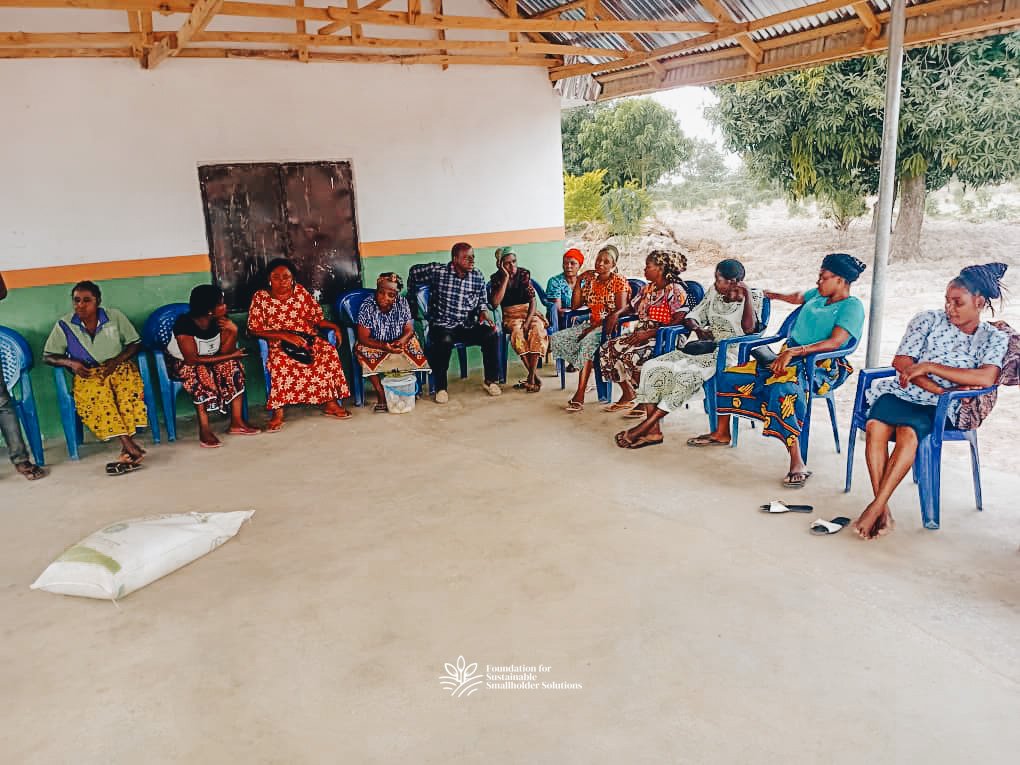
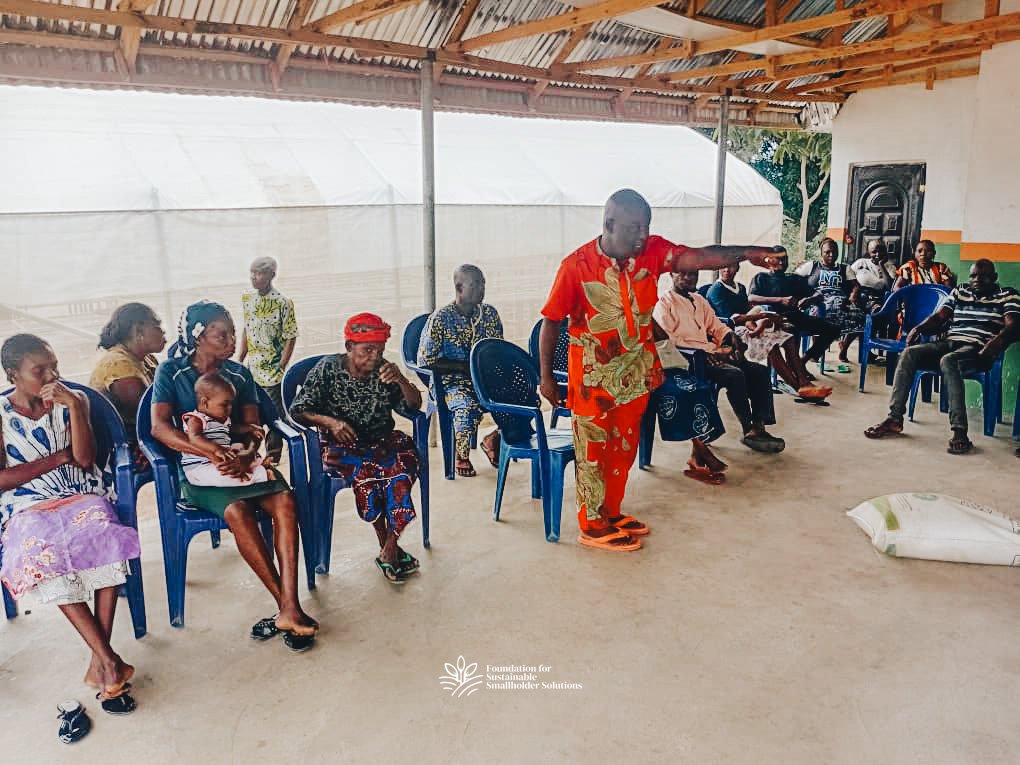
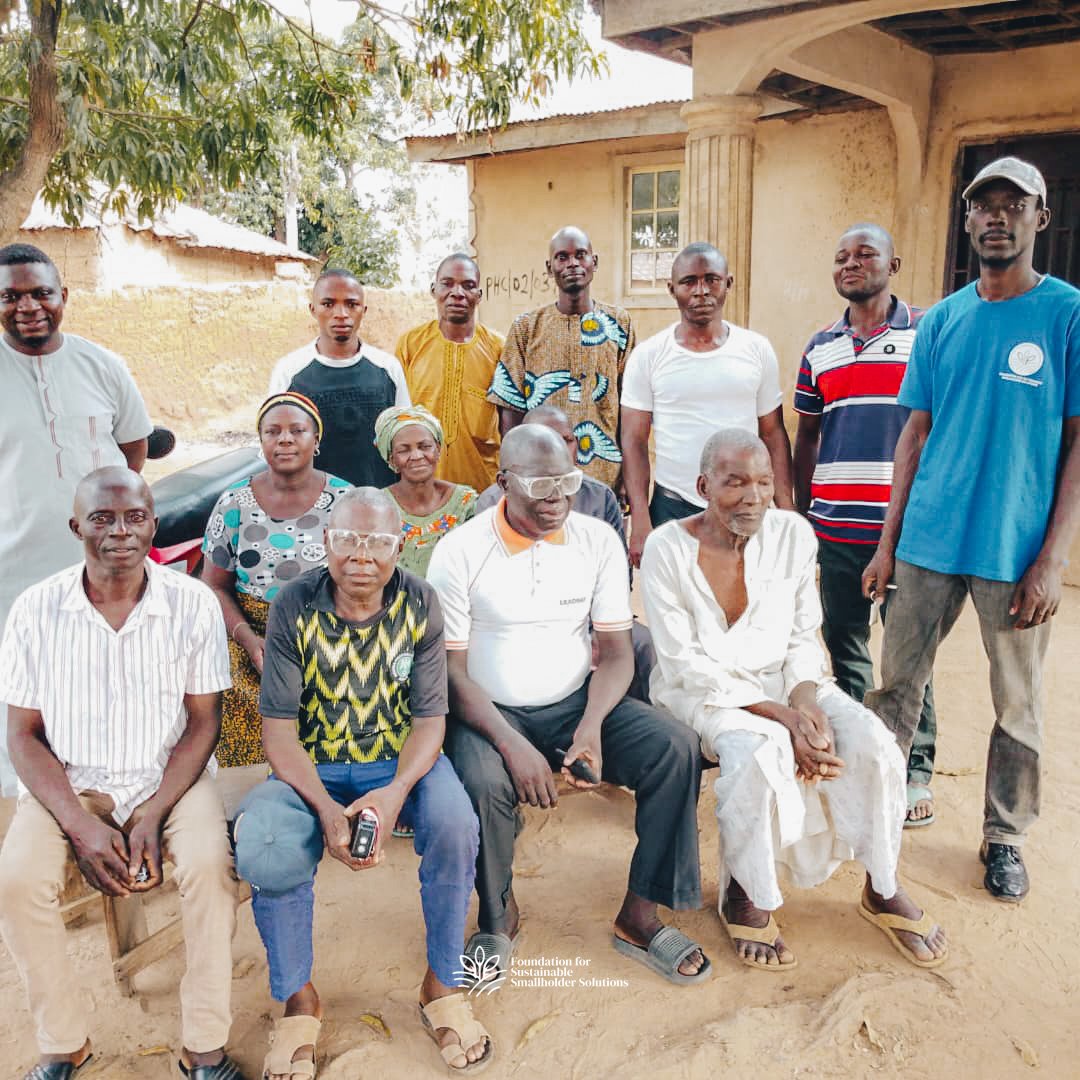
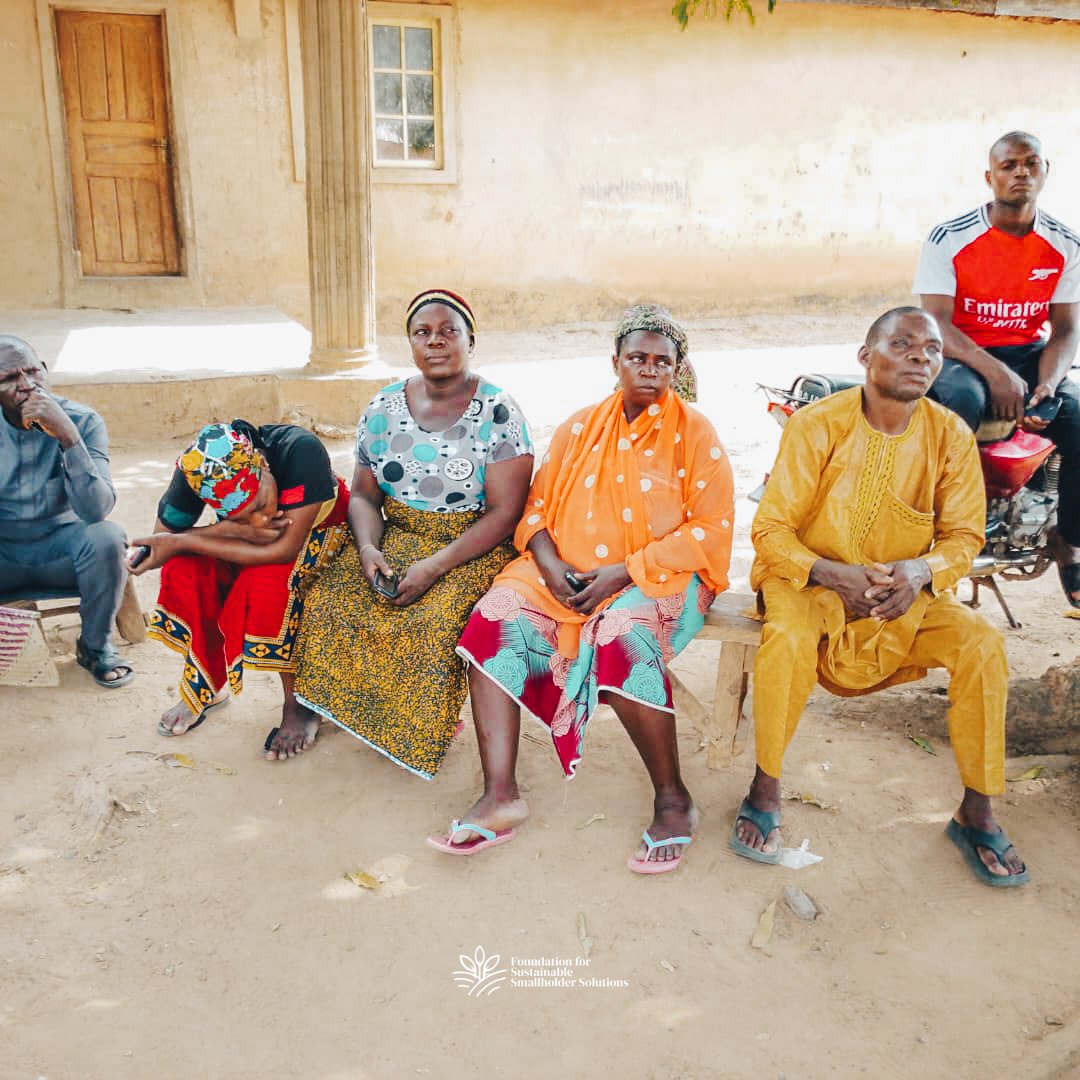
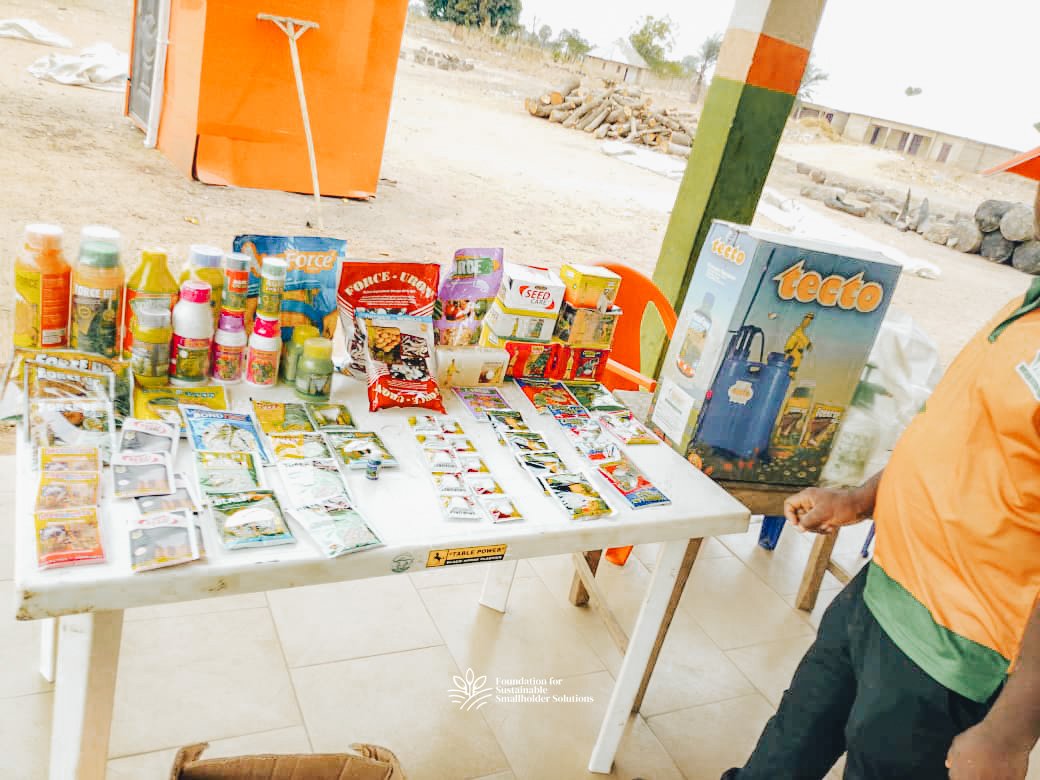
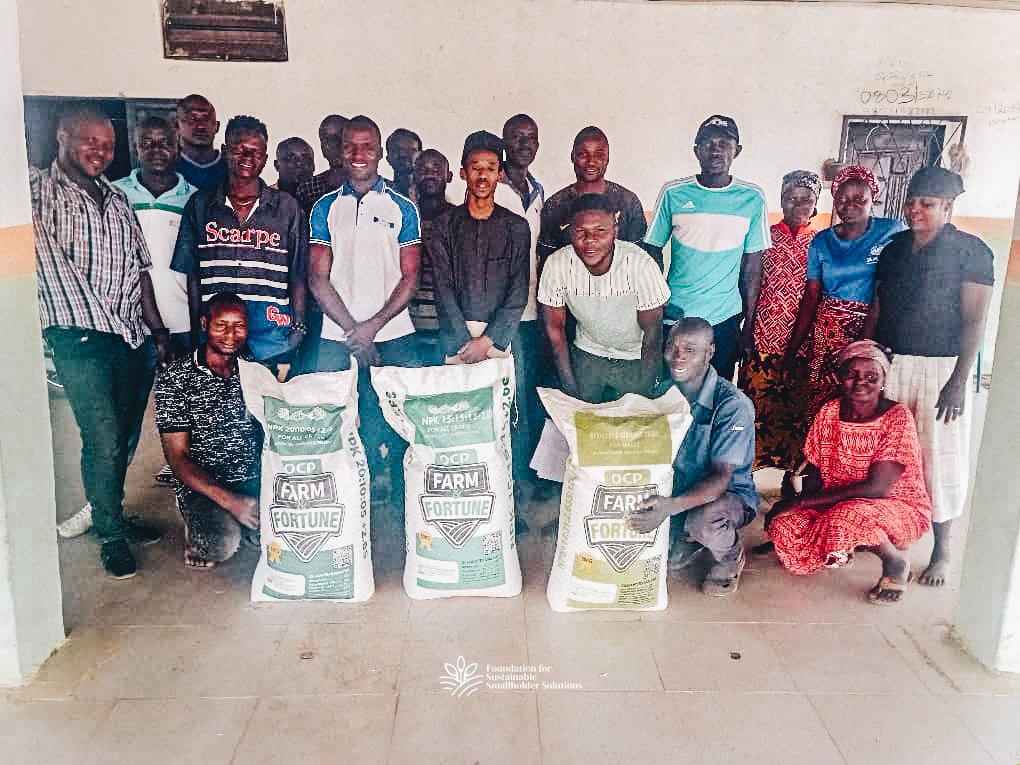
Strengthening Agricultural Input Supply Chains
With many rural farmers facing unreliable supply of authentic inputs, the Foundation focused heavily on improving last-mile distribution and affordability through its Farmers’ Hubs.
Highlights include:
Saminaka, Kaduna State (April 14): The AVISA Hub received 300 bags of OCP fertiliser, including crop-specific formulations for maize and legumes. This was a product of the Foundation’s strategic alliance with OCP Africa to localise input access.
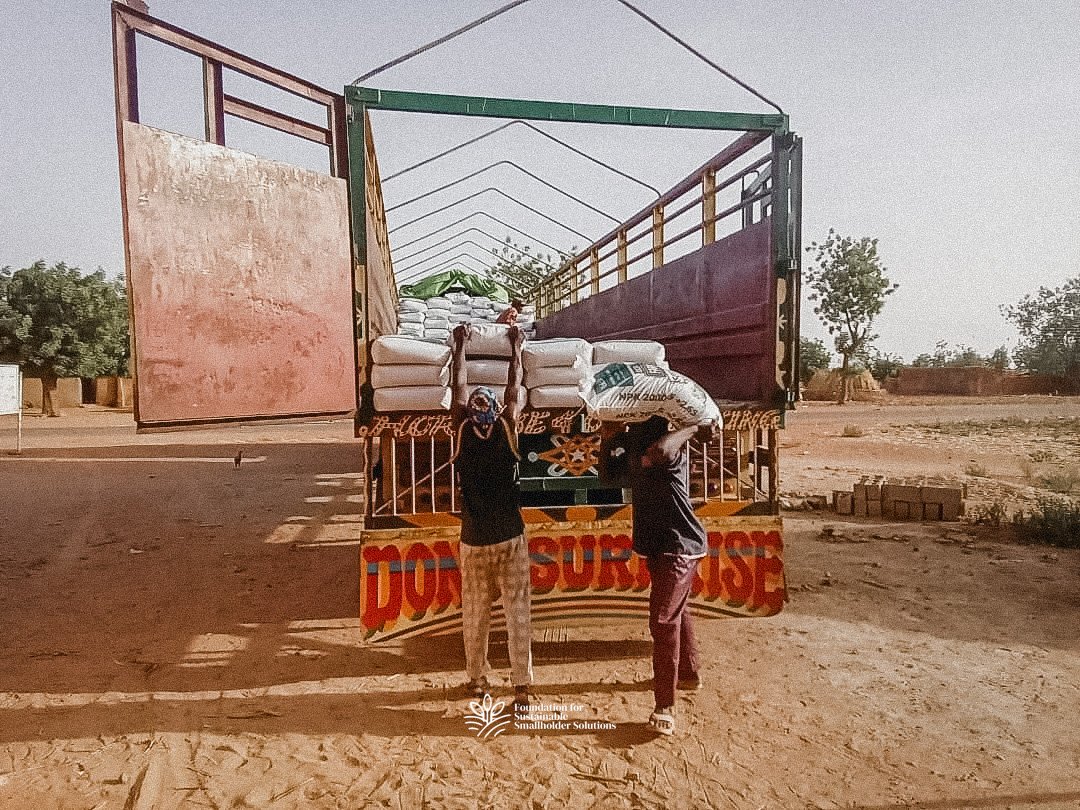
Nasarawa-Eggon, Nasarawa State: The Fruitful Farm Hub finalised a procurement deal worth ₦811,700 with agro-input supplier Chimens Agro Ltd, ensuring the availability of pesticides and herbicides for over 200 smallholder farmers.
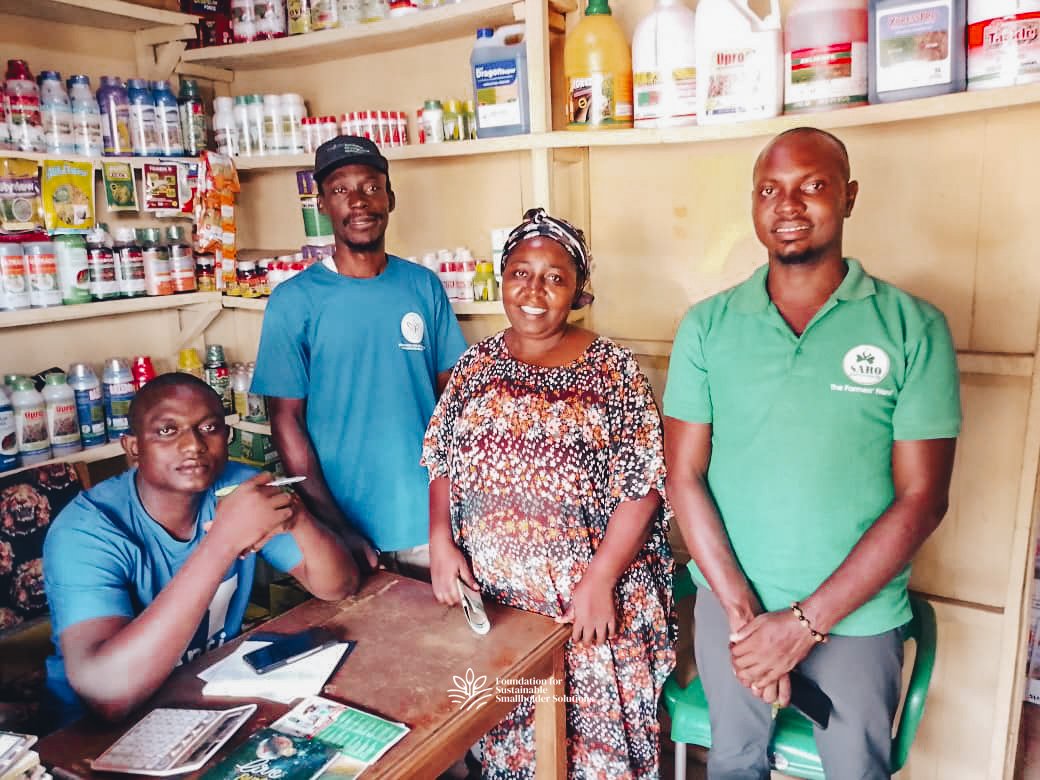
Imawa Hub, Kano State: A bulk consignment of 600 bags of fertilisers (including NPK 15:15:15 and rice/maize special blends) was delivered alongside structured training on fertiliser efficacy, safe handling, and soil compatibility.
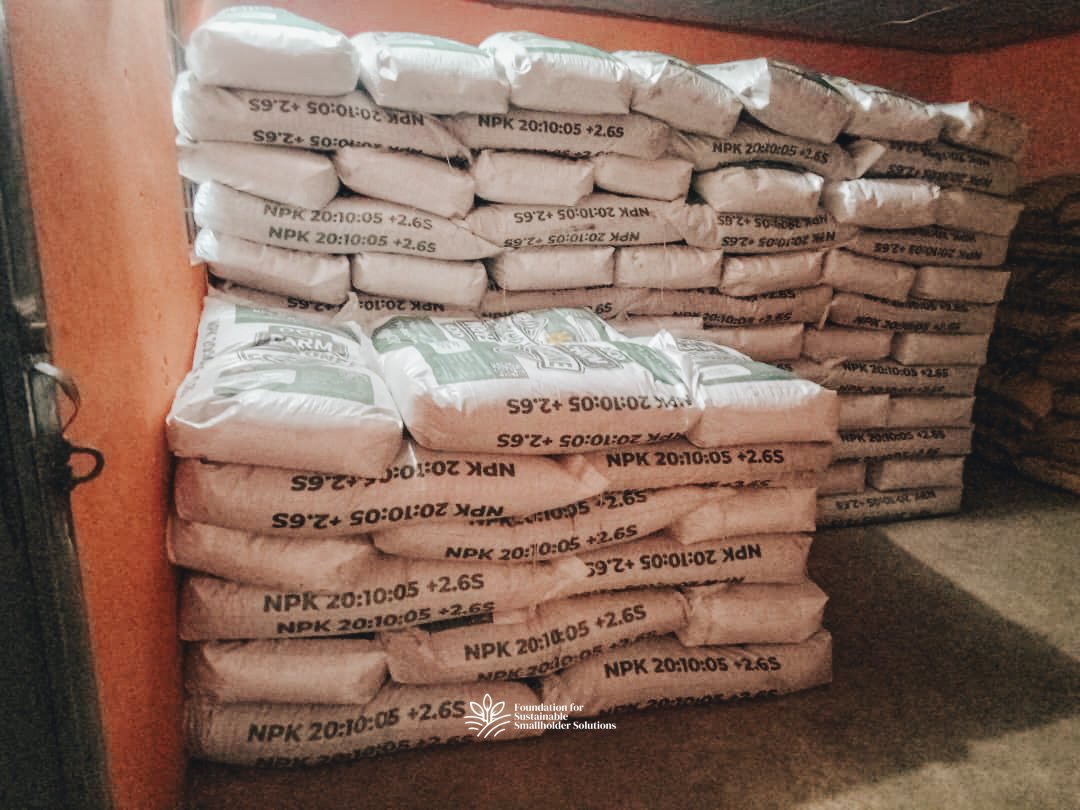
These efforts not only reduce input shortages but also foster trust-based relationships between farmers and input providers, a critical step in formalising rural agri-markets.
Monitoring, Advisory Services, and Trust Building
Beyond inputs and training, the Foundation continued its regular field supervision to ensure the smooth operation of its expanding Farmers’ Hub network.
Monitoring activities included:
- Greenhouse and irrigation performance assessments
- Inventory audits to prevent stock outs
- One-on-one advisory sessions with farmers seeking guidance on mechanisation, input bundling, or market access
- Introduction of service bundles combining soil testing, input kits, and yield forecasting
These engagements form part of the Foundation’s broader goal: building farmer confidence through consistent, accessible, and informed support.
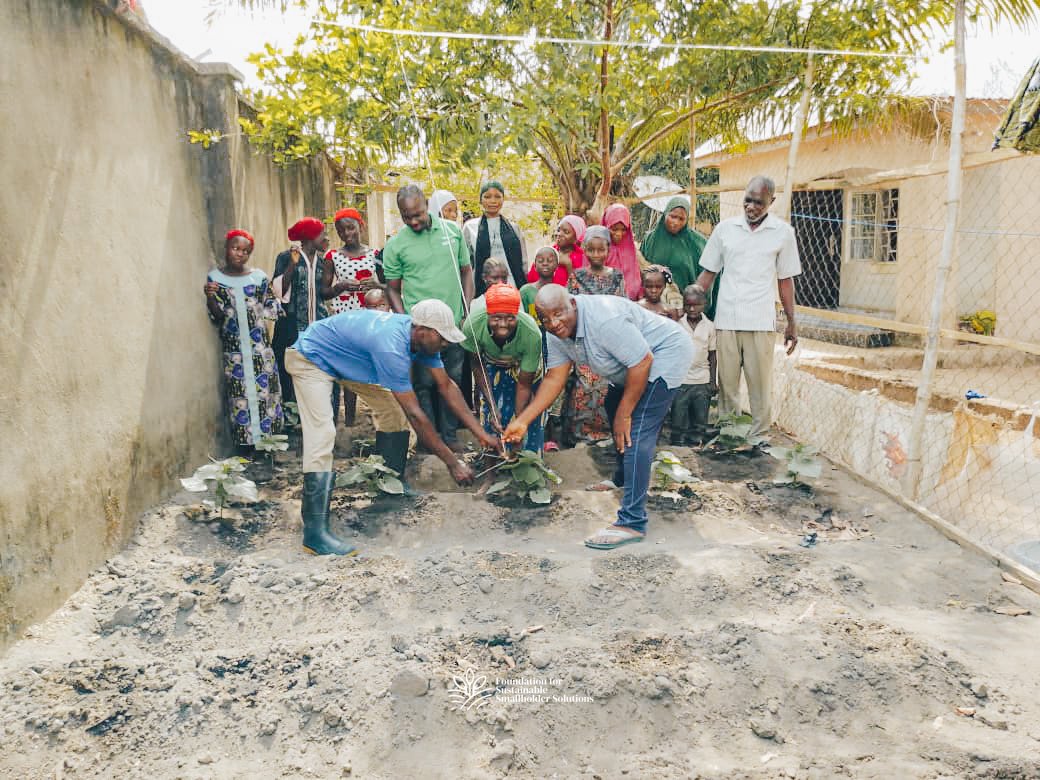


Collaborating for Rural Agricultural Development
On April 9, Foundation staff participated in the Agricultural Training and Empowerment Programme for Rural Farmers in Ogun West senatorial district, Ogun State, hosted by Senator Solomon Adeola. Representing the Ayetoro and Odolewu hubs, our team received farming tools, bolstering our input delivery infrastructure including:
- Tricycles for produce transport
- Solar-powered irrigation pumps
- Fertilisers and insecticides
This collaboration enhanced the Foundation’s logistical infrastructure and reinforced the importance of public-private cooperation in scaling rural agricultural systems.
In Tribute: Remembering Musa Usman
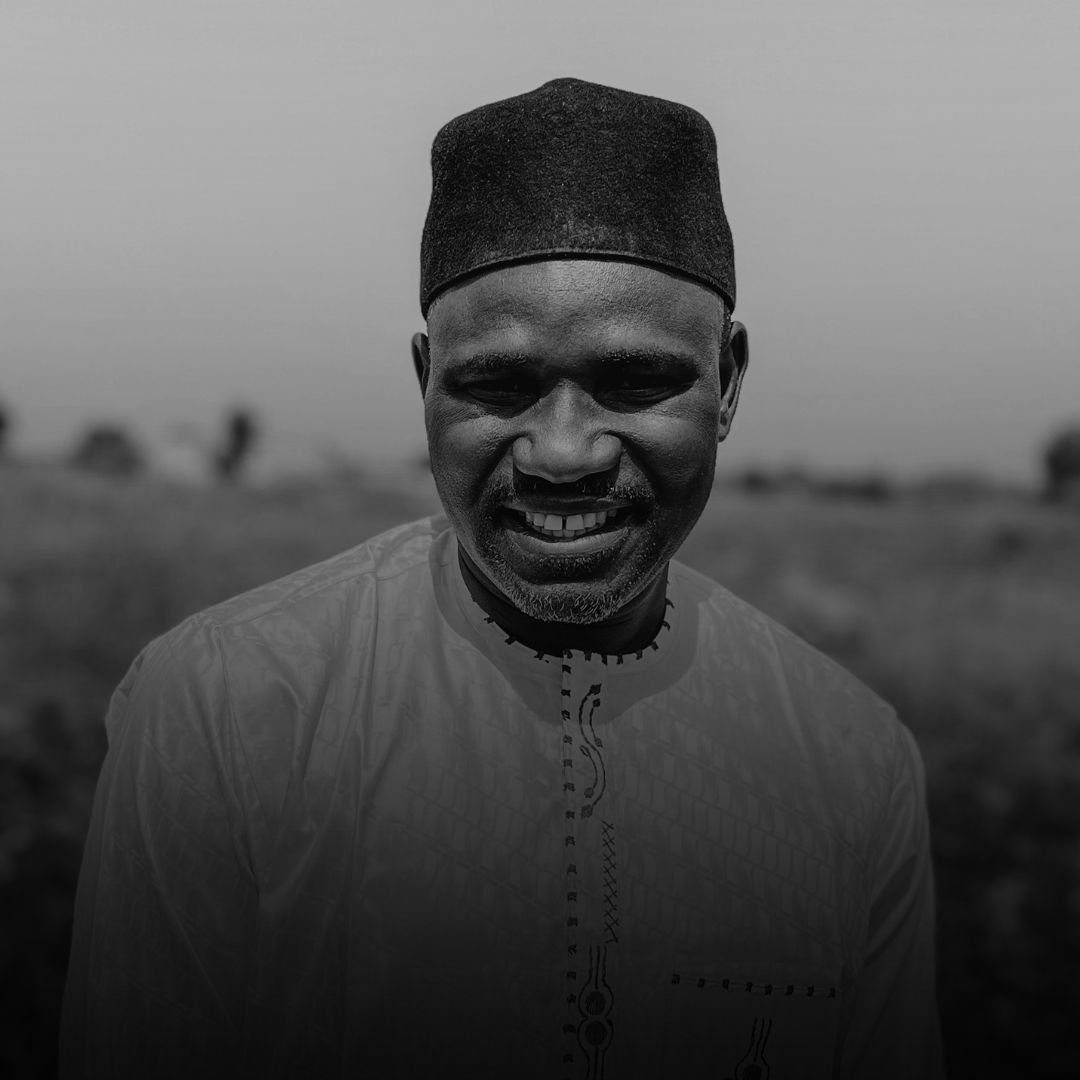
Amid the achievements of April, the Foundation was deeply saddened by the loss of Mr Musa Usman, Hub Manager for Makoda LGA, Kano State, who passed away on April 15 after a brief illness. Known for his humility, diligence, and unwavering commitment to farmer development, Mr Usman’s passing left a void in both the community and our network.
A condolence delegation visited his family, offering moral and material support to his wives and children. His legacy remains a powerful reminder of the impact that dedicated individuals have on transforming agriculture from the ground up.
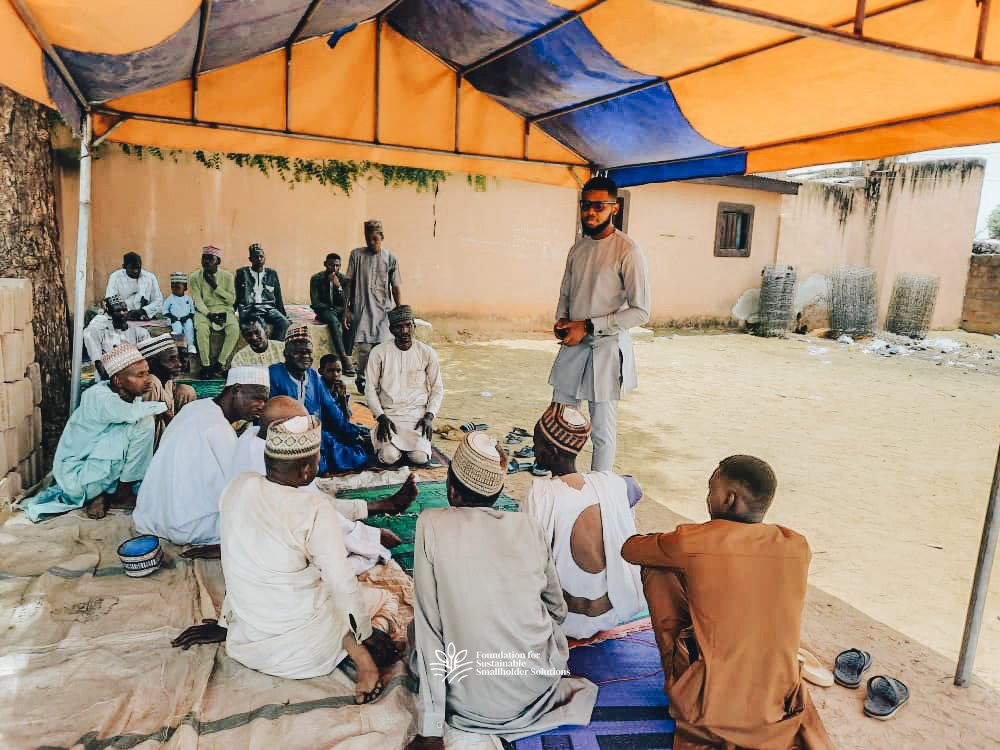
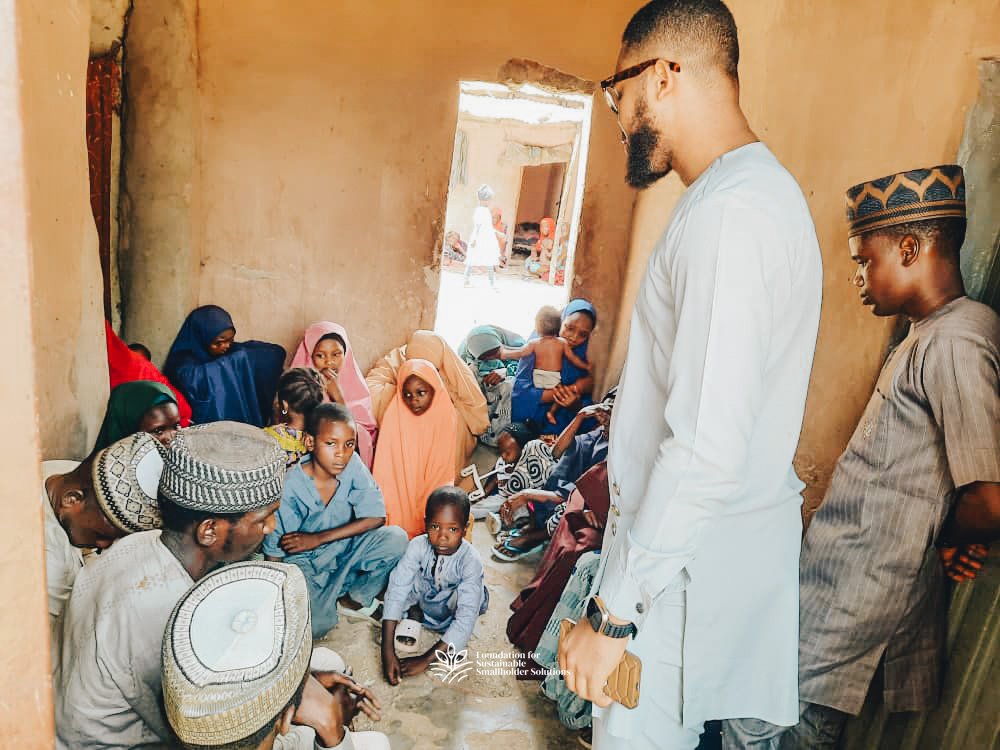
Looking Forward
April 2025 highlighted not only the challenges facing Nigeria’s smallholder farmers but also the immense potential of community-driven, climate-smart interventions. As the planting season progresses, the Foundation is set to intensify its efforts with:
- Expanded digital advisory platforms for remote support
- Scaled-up input delivery logistics
- Enhanced youth and women-focused programming
- And deeper cross-sector partnerships
In a time of climate urgency and food system fragility, the Foundation’s work serves as a beacon of what is possible when purpose, people, and policy align to uplift those who feed the nation.


